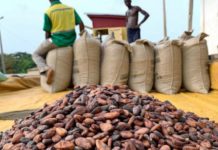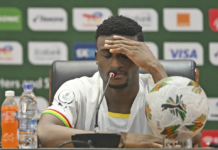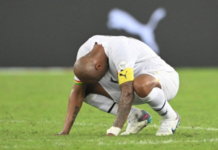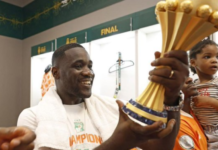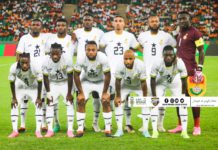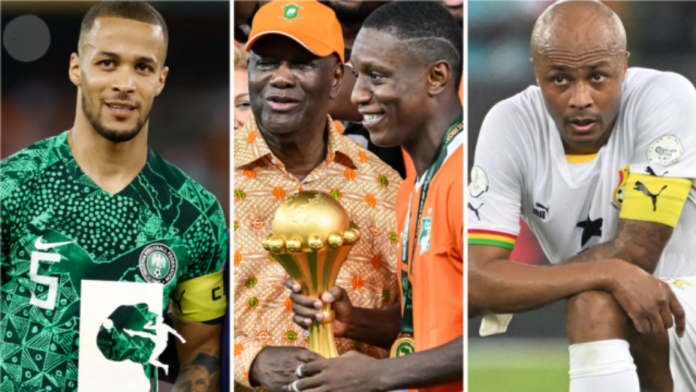
The 2023 Africa Cup of Nations ended with hosts Ivory Coast lifting the trophy after arguably the most exciting edition of the tournament in living memory.
There were surprise success stories almost every step of the way, with the Elephants serving up more plot twists than a Hollywood thriller before securing the silverware.
Much had also been made of the impact the finals would have in the host country after an unprecedented spend on preparations which stretched far beyond football.
BBC Sport Africa takes a look at some of the winners and losers from 30 unforgettable days of drama at the 34th edition of the continent’s biggest event.
The winners
Ivory Coast and Emerse Fae
Sebastien Haller, who returned from testicular cancer 13 months ago, netted the decisive goals in the semi-final and final to seal a third continental title for the Ivorians.
It was also a major success for an interim coach who was taking charge of his fourth game in senior management.
“It is more than a fairy tale,” stand-in boss Emerse Fae said after the comeback win over Nigeria in the final.
“When I think about all we have been through, we are miracle survivors. We managed to come back from so many tough blows.”
The Ivorians had parted company with coach Jean-Louis Gasset after almost suffering a group-stage exit, needed penalties to beat the defending champions Senegal in the last 16 and scored a 122nd-minute winner in the quarter-finals.
It remains to be seen if the 40-year-old will keep the job permanently, something he had refused to discuss before the final.
“The honest truth is that I asked those in charge not to talk to us about what is going to happen after the competition,” Fae added.
The host nation
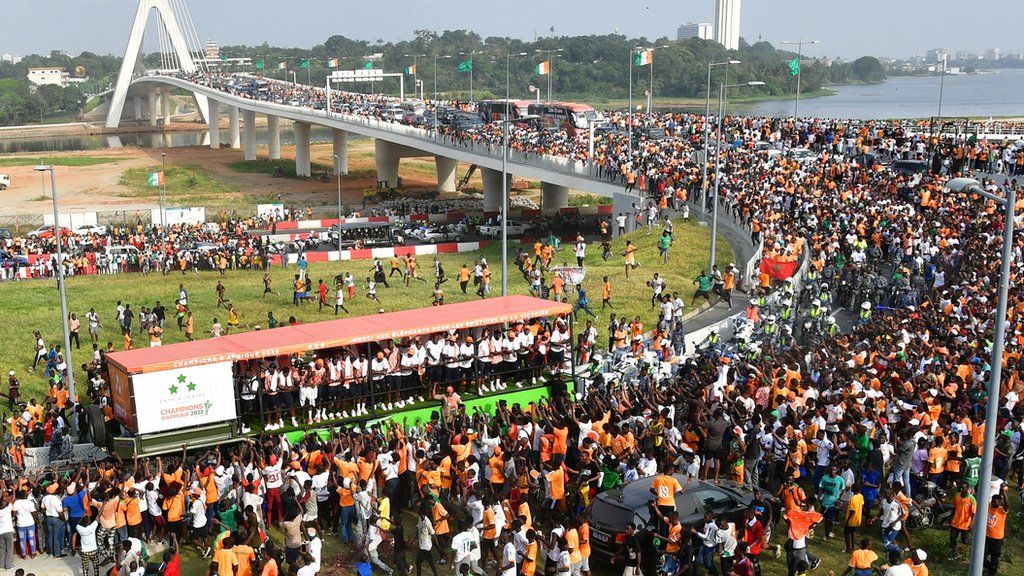
The Ivorian government spent well over $1bn (£789m) on hosting the tournament, including the building of four new stadiums and renovation of two others.
Airports, roads, hospitals and hotels were either constructed or upgraded in the five host cities of Abidjan, Bouake, Korhogo, San Pedro and Yamoussoukro, which is the capital of a nation ranked as the world’s 138th-richest out of 190.
The excitement in the country was epitomised by the number of replica orange shirts spotted on the streets of the country and attendance at games were strong after a slow start.
With improved transport links which could boost tourism in the future, President Alassane Ouattara joined in the post-match celebrations – perhaps reflecting on money well spent in staging the finals.
“With the image we showed, Africa must be proud,” said Ivory Coast co-captain Serge Aurier after the final.
“We have progressed, whether it be the teams, the stadiums, the living environment.”
Thousands of fans then flooded the streets of Abidjan for a trophy parade on Monday.
The underdogs
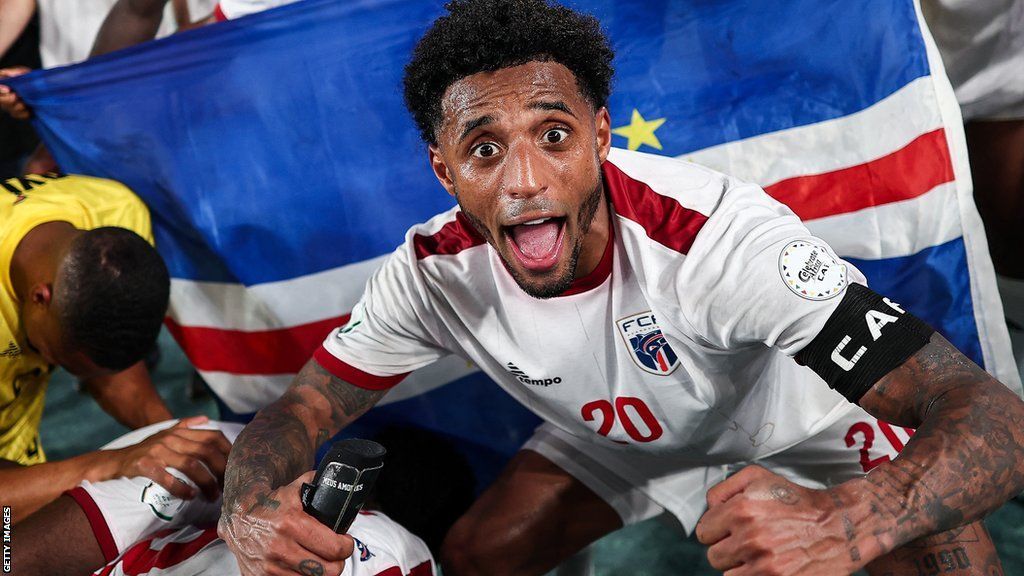
The finals delivered upsets aplenty, with Equatorial Guinea thrashing the hosts and finishing above Nigeria in Group A, while Cape Verde also topped their group ahead of more illustrious opponents.
Namibia and Angola, who were among the four lowest-ranked teams in the group stage, reached the knockout stages while Mauritania registered their first win at the finals.
South Africa upset Morocco on their way to the last four. More tellingly, the surprise results and performances were not flukes.
“The gap between the big nations and the small ones is shrinking,” said Herita Ilunga, the former DR Congo defender who is part of the Confederation of African Football’s technical study group.
“It proves the development of African football.”
The viewers
The 2023 finals served up a record 119 goals at an average of 2.29 a game. Not since 2012 (2.38 goals per game) has that figure been bettered.
Caf said more than two billion people watched the tournament live on TV – making it by far the most-watched Nations Cup finals in history – with 173 territories across the globe broadcasting the final.
Late goals were a particular feature, with Group B alone providing more after the 89th minute than the entire 2021 tournament did.
The four shootout saves in the quarter-finals by South Africa’s Ronwen Williams showed that the goalkeepers were in blockbuster mode, too.
William Troost-Ekong
Despite finishing on the losing side, the Nigeria captain was named as player of the tournament following his three goals at the finals.
The 30-year-old scored high-pressure penalties against Ivory Coast in the group stage and South Africa in the semi-final before opening the scoring against the Elephants in the final.
He marshalled a Super Eagles defence which kept four clean sheets, and the centre-back became the first defender to score three goals at a single Nations Cup since Libya’s Ali Al-Beshari in 1982.
VAR and officials
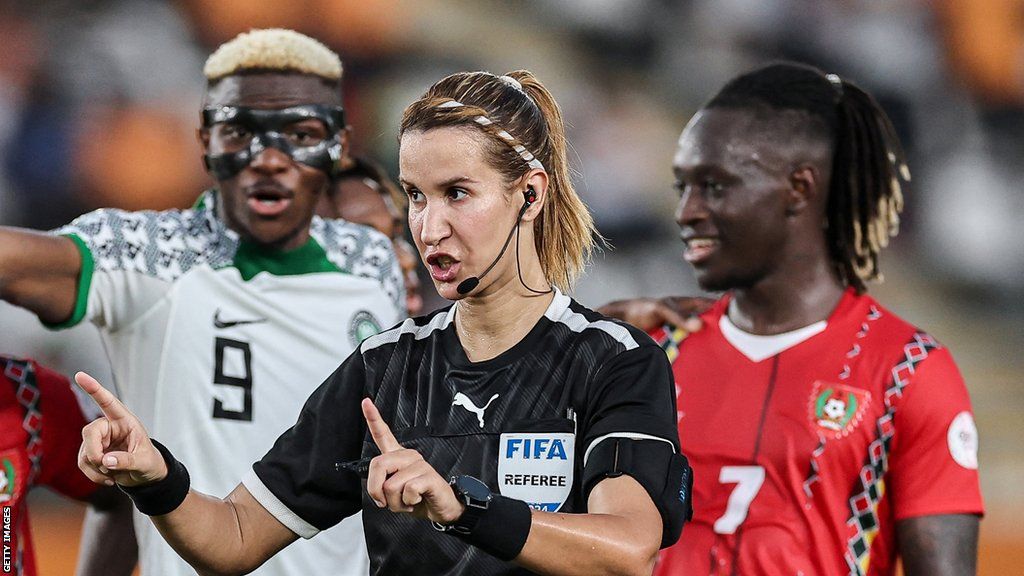
You will rarely see a coach praise the use of technology when it goes against their team – but Nigeria coach Jose Peseiro did just that when he reflected on one extraordinary semi-final plot twist.
The Super Eagles thought they had gone 2-0 up in the 85th minute through Victor Osimhen, but South Africa were awarded a penalty instead for a foul in the build-up.
Video Assistant Referee (VAR) reviews were used judiciously – and extremely effectively – across the tournament.
The losers
Ghana
The four-time champions slid out at the group stage in calamitous style, gifting Cape Verde a 92nd-minute winner and allowing Mozambique to score twice in second-half injury time.
Coach Chris Hughton was duly dismissed, having struggled to ease the pressure his squad had faced to record a first triumph for their country since 1982.
A second successive winless campaign was another meek Nations Cup showing by the Black Stars. Their only solace came when fierce West African rivals Nigeria lost the final.
North African nations
There had been North African finalists at the previous three tournaments, so the failure of any of their contingent to make the quarter-finals was a big surprise.
All four representatives from the region were among the five highest-ranked teams, but Algeria exited after a sensational defeat by Mauritania and Tunisia lost to a Namibia side ranked 85 places below them.
In the last 16, 2022 World Cup semi-finals Morocco succumbed to Bafana Bafana and record seven-time champions Egypt were ousted on penalties by DR Congo.
Morocco will host the 2025 Nations Cup, where they will be targeting a first title since their sole triumph in 1976.
Mohamed Salah
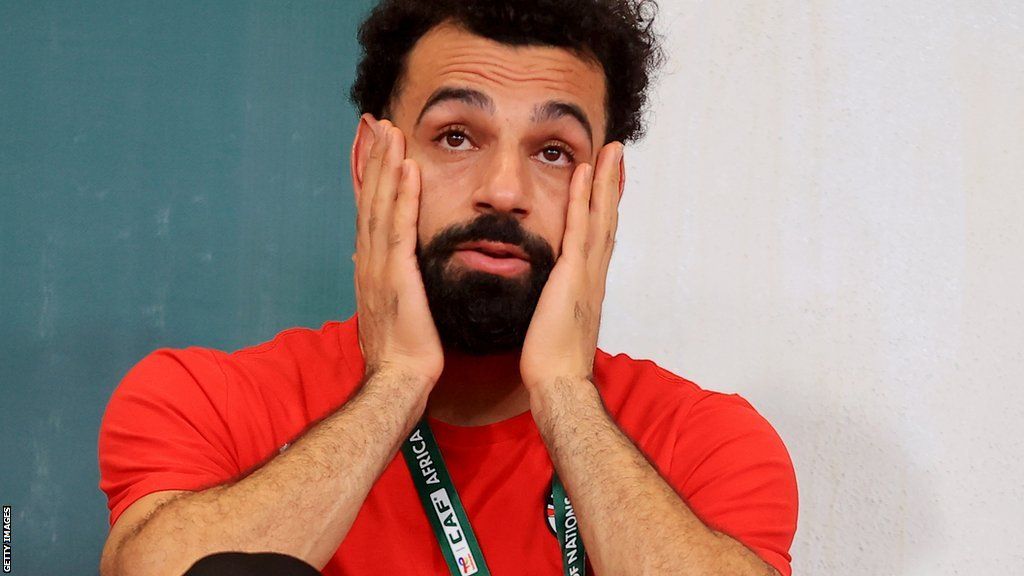
Having been a runner-up in 2017 and at the 2021 edition, the Egypt captain spoke of his desire to end his country’s 14-year wait for the title.
The Liverpool forward rescued a late draw for the Pharaohs in their opener against Mozambique, but was forced off before half-time in their second group game against Ghana.
A brief soap opera played out over the status of his hamstring injury, with a crucial update from his agent and a murmuring of discontent between Egypt and the Reds before the North Africans exited on penalties.
Salah is yet to return to action for the Premier League title challengers – and he will be 33 by the time of the next Nations Cup finals.
The coaches
If Hughton wanted consolation after becoming the first managerial casualty of the Nations Cup, seven of his 23 fellow managers who started the finals were gone before the tournament ended.
Algeria’s Djamel Belmadi, Tunisia’s Jalel Kadri and Egypt’s Rui Vitoria also paid the price for poor tournaments.
Tom Saintfiet resigned as The Gambia boss after their exit, while Guinea-Bissau and Burkina Faso decided not to renew the contracts of Baciro Cande and Hubert Velud respectively.
Elsewhere, Adel Amrouche was suspended by Tanzania in the wake of receiving an eight-match Caf ban.

